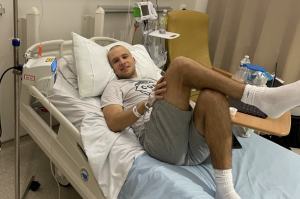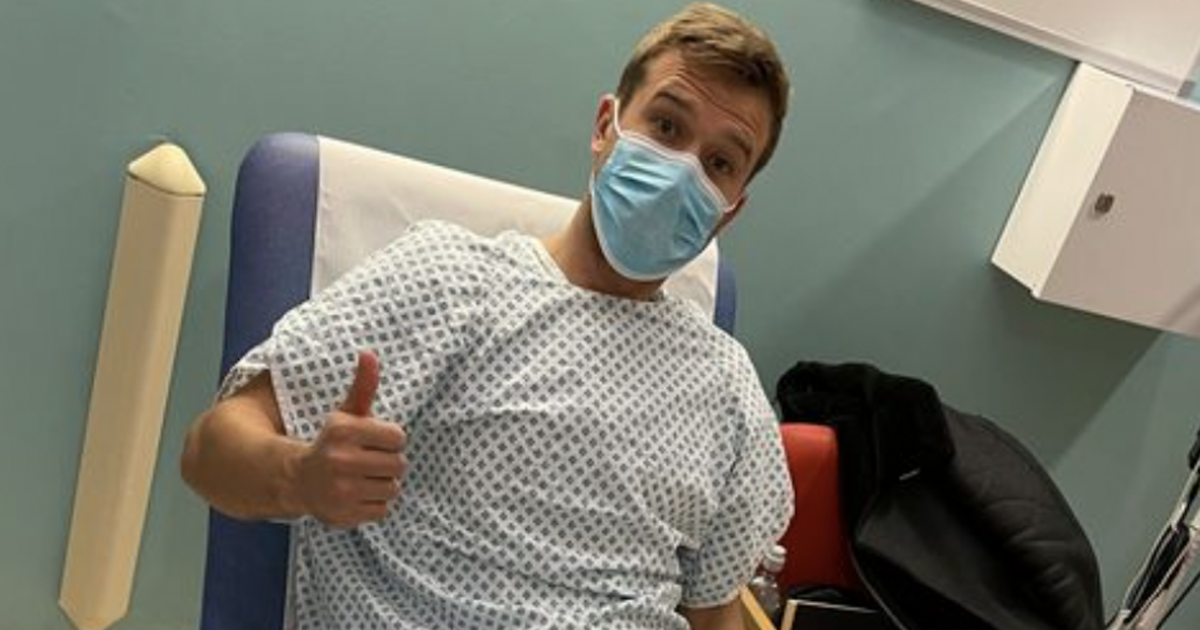Racer Fights Testicular Cancer after Unusual Discovery
- Semi-professional motorbike racer Sam Cox, 31, was diagnosed with testicular cancer following a bike crash. After chemotherapy, he is now cancer-free.
- Testicular cancer is most common in young men. The average age of diagnosis is 33 years old. This cancer often presents as an unusual lump; testicular cancer is treated with chemotherapy, surgery, and radiation.
- "Invest in your health by eating well and exercising regularly," say our experts on how to lower testicular cancer risk; additionally, perform regular self-checks after showering.
Semi-professional motorbike racer Sam Cox was preparing to race in the British Superbike Championship this year when he was diagnosed with testicular cancer following a crash, The Hertfordshire Mercury reports, writing, “Sam started to experience a dull ache in his left testicle in October last year, shortly after suffering from a motorbike crash that left him with a broken hand and a broken foot.”
Read More
“I never thought I would hear a doctor tell me that I have cancer when I am in my early 30s.”
He describes his shock at the diagnosis, saying, “You hear about cancer on the TV and about people getting cancer but when the spotlight is turned on you and someone is telling you that you have cancer inside your body, nothing can ever prepare you for that,” says Cox. “It hits you like a shockwave. I never thought I would hear a doctor tell me that I have cancer when I am in my early 30s.”
As of early March, Cox is cancer-free and doctors told him he beat his cancer.
Understanding Testicular Cancer
Each year, approximately 10,000 new cases of testicular cancer are diagnosed in the U.S. This is a cancer that primarily affects young men aged 15 to 35. The average age at the time of diagnosis of testicular cancer is about 33, according to the American Cancer Society.
Dr. Edwin Posadas, the medical director of the Urologic Oncology Program at Cedars-Sinai Cancer, tells SurvivorNet in an earlier interview that this disease often presents as an unusual lump. "It's not uncommon to see men come in with masses on their scrotum and have inflammation of the scrotal wall; they develop pain as a result. A lump is the most common symptom of testicular cancer."
Related: 5 Important Facts About Testicular Cancer, Including How to Screen for the Disease
Dr. Posadas also says that testicular cancer doesn't often present with pain, but it can. "Most men will present with some sort of mass on their testicle. A sexual partner or spouse may feel the mass when they're being intimate." He also says some men may notice blood in their ejaculate as a result of testicular cancer, which is a less common symptom.
In an earlier interview, Tripp Hornick reflects on the potential embarrassment some men might feel after a testicular cancer diagnosis, as with other intimate-body-part cancers, such as anal cancer. He tells SurvivorNet, "Shame is an important topic when it comes to cancer. And I think we as men have an awful lot that we can learn from what women have had to go through in breast cancer."
"The most important thing is to never become the victim and not to empower yourself as a victim," says Hornick. "There's nothing good and nothing positive about sending a message as a victim and a culture of victimhood. The way to turn the shame upside down, if you have it, is to show how strong you are."
"Those of us, the vast majority of people who have had [testicular] cancer and gone on to live very successful and happy lives listen to those people. Listen to us. Listen to yourself."
Dealing With the Shame That May Come With Testicular Cancer
Treatment for Testicular Cancer
The treatment path for testicular cancer will depend upon the stage at which the cancer is diagnosed. Common treatments for testicular cancer include chemotherapy, surgery, and radiation.
When it comes to risk mitigation for testicular cancer, maintaining a healthy lifestyle is important, says Dr. Posadas. "When your body is young, you want to invest in the future the same way we think about saving money you want to save health," says Dr. Posadas.
"Invest in your health by eating well and exercising regularly. The epidemic of obesity is dangerous. Due to the lifestyle of convenience," he says, "some men are not taking the best care of themselves, and not seeing a physician. One has to invest in their long-term future."
Losing a Testicle to Cancer Doesn't Mean You'll Lose Out on Love
Learn more about SurvivorNet's rigorous medical review process.

